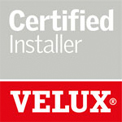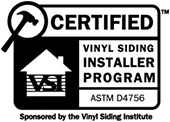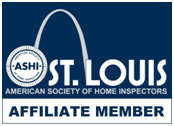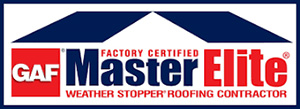Here in Missouri, we are no strangers to hailstorms. The information in this article is provided by the National Storm Damage Center (www.stormdamagecenter.org).
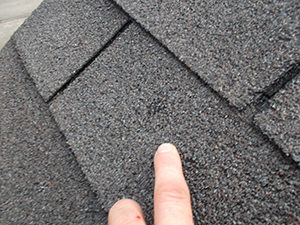 By definition, hail damage is any damage resulting from hailstones and hailstorms. Hailstones that are 0.75 inches or greater are large enough to cause substantial damage to homes, automobiles & property. For comparison, 0.75 inches is the diameter of a penny.
By definition, hail damage is any damage resulting from hailstones and hailstorms. Hailstones that are 0.75 inches or greater are large enough to cause substantial damage to homes, automobiles & property. For comparison, 0.75 inches is the diameter of a penny.
You may think that just because you can’t see any signs of damage, or because your roof isn’t leaking, you don’t have damage. Remember, hail damage can be particularly difficult to identify and many homeowners discover major roofing damage years down the road, after it’s too late to file a storm damage claim with their insurance company. If you have any reason to suspect hail damage after a storm, you should have a full property damage inspection performed by a reputable contractor right away.
Roofs are the most commonly damaged part of a home or business in hailstorms. A damaged shingle may allow water to seep through the roof causing additional damage to the roof deck, support structure, interior walls, or windows, and can cause leaking, staining on walls and flooding inside your home. Leaking roofs lead to costly damages and many insurance policies have strict time limits on submitting claims after hailstorms, so it’s in your best interest to act fast after hailstorms and start the repairs process, if necessary.
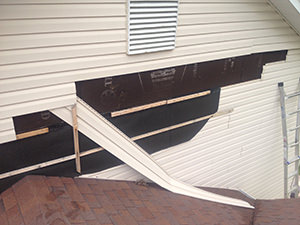 Siding damage often results from wind-driven hail. The three most common signs of damage to siding are cracking, chipping and holes.
Siding damage often results from wind-driven hail. The three most common signs of damage to siding are cracking, chipping and holes.
Window damage is similar to siding damage, but usually more obvious to identify. Wind-driven hail can strike windows and break the glass itself, or cause damage to the seals on the windows.
Exterior appliances can also sustain damage in hailstorms. Denting and intake of excessive amounts of water often affect HVAC units after severe hail.
Hail damage can be very difficult to detect and often occurs to roofs, siding and windows, all of which are difficult DIY repair projects that could void your homeowners insurance or manufacturer warranty, if not performed by a licensed contractor. Due to the risks associated with hail damage, it is recommended to cut to the chase have a storm damage repair contractor inspect your damages right away.
If you have any concerns about hail damage to your home, call us today at 314-378-6623!








